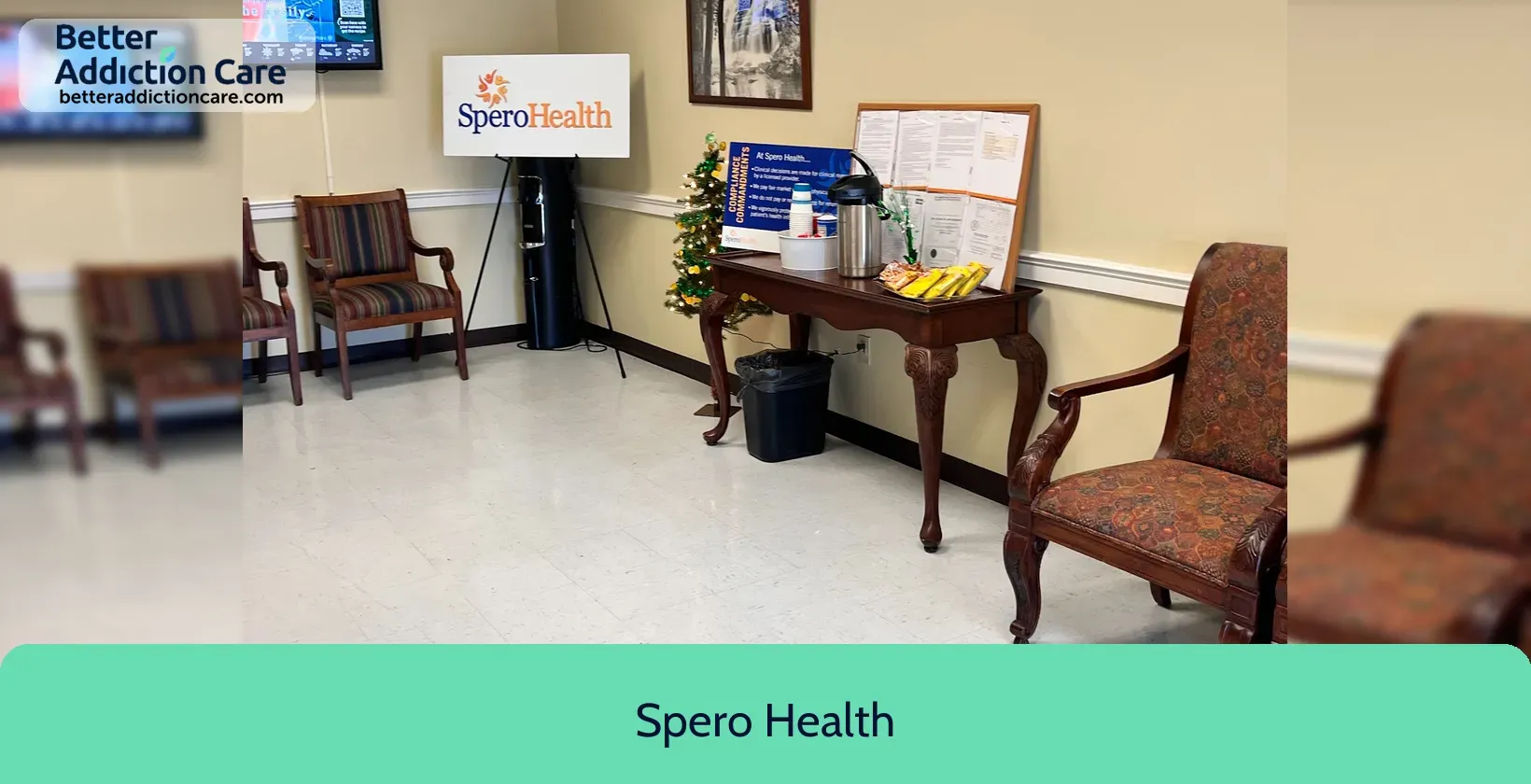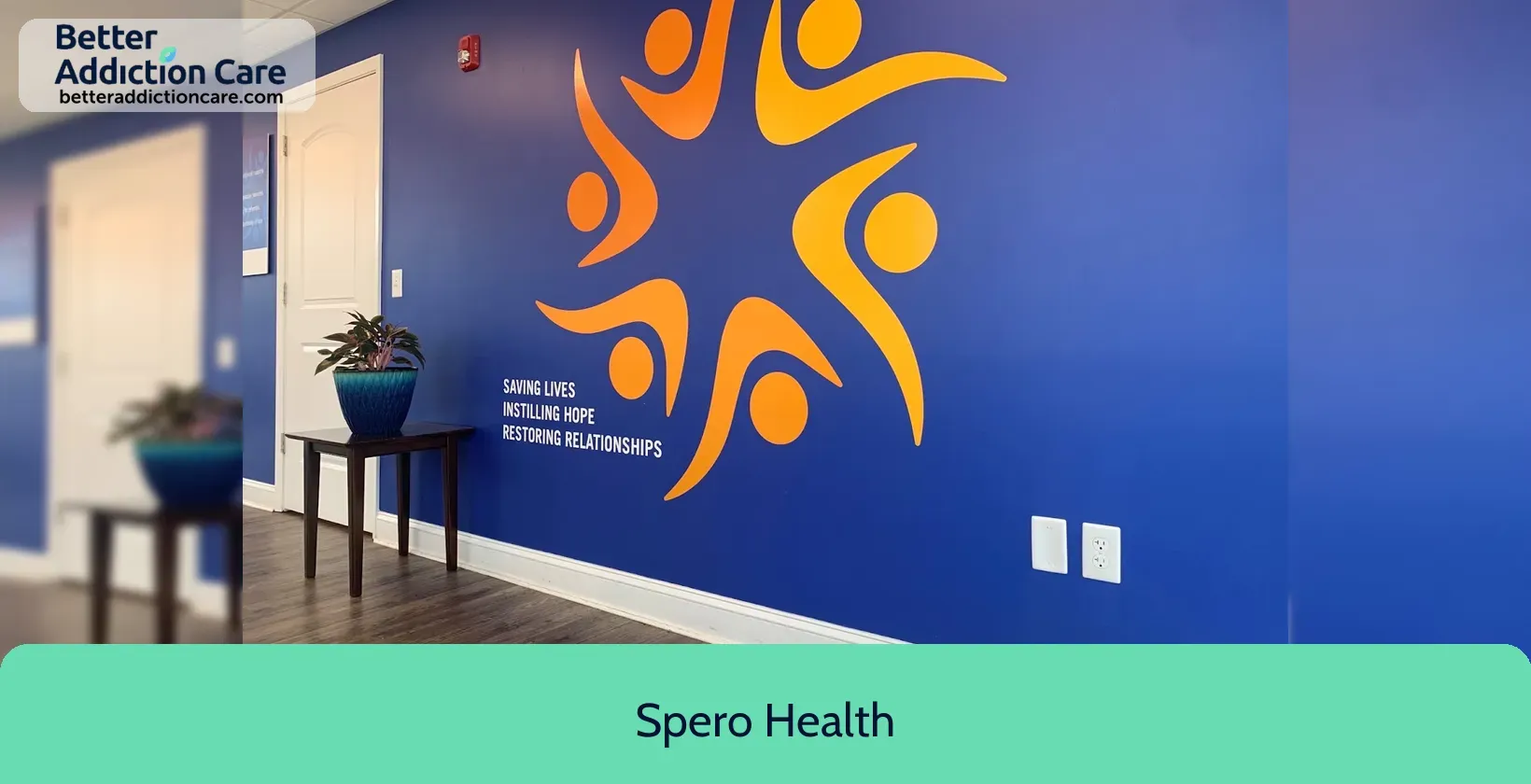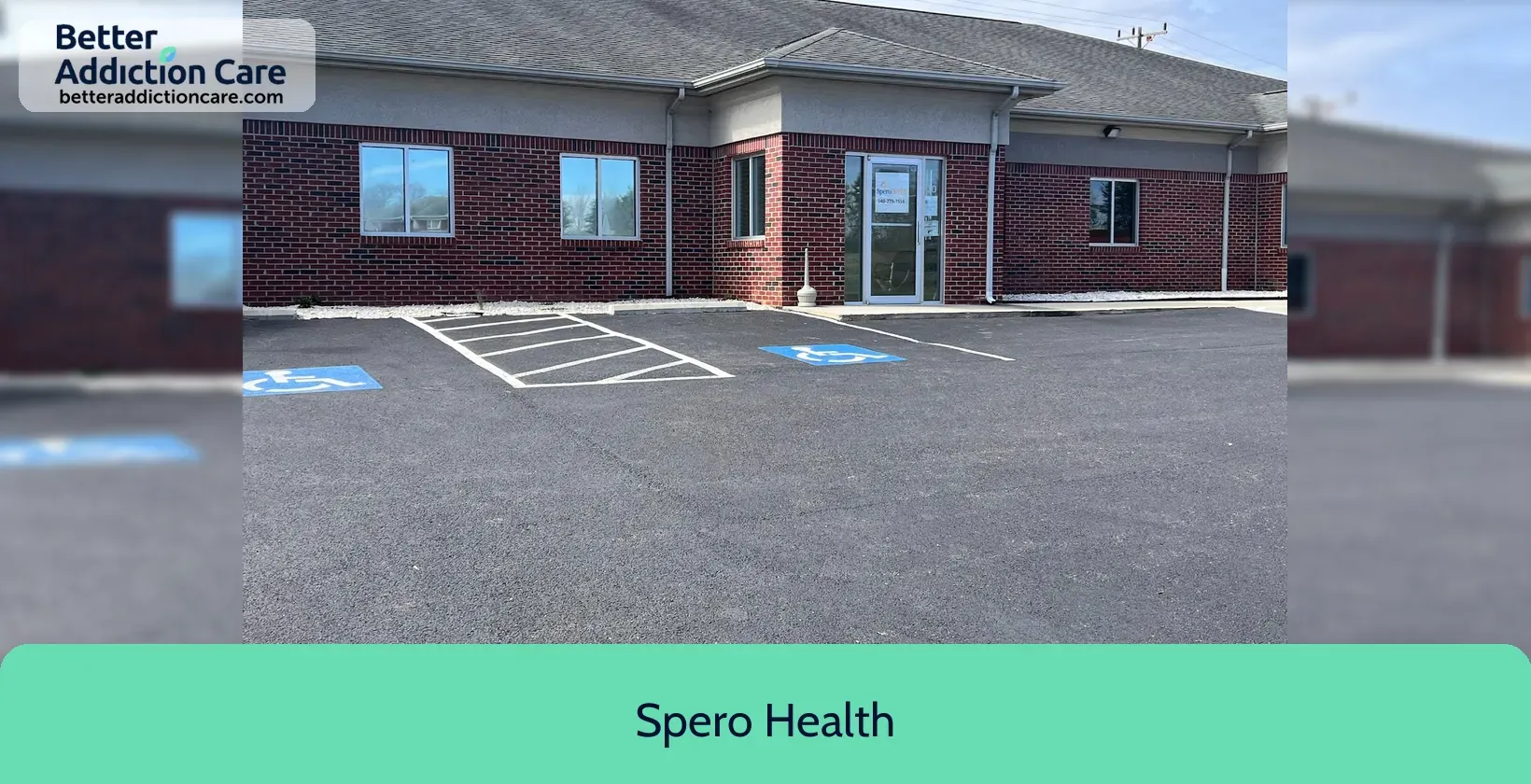Overview
At its Dublin, Virginia location, Spero Health offers outpatient addiction treatment to people with alcoholism and drug use disorders, including opioid and stimulant addiction. The center offers a variety of services to help patients get better by adapting their care to their specific needs. There is one-on-one and group counseling, medication-assisted treatment (MAT) with FDA-approved drugs like Suboxone and Vivitrol, and rehab support services to help people stay sober for a long time.
The clinic addresses substance abuse and co-occurring mental health illnesses by utilizing evidence-based techniques and individualized rehabilitation strategies. Spero Health's integrated care approach combines mental and physical health care, so patients can recover while still taking care of their daily obligations, like work and family. This all-around method makes sure that patients get all the help they need to get better. The Commission on Accreditation of Rehabilitation Facilities (CARF) has given Spero Health its seal of approval, which means that they provide high-quality care.
Spero Health at a Glance
Payment Options
- Cash or self-payment
- Medicaid
- Private health insurance
- Federal military insurance (e.g., TRICARE)
- Self-pay options
Assessments
- Screening for tobacco use
- Comprehensive mental health assessment
- Comprehensive substance use assessment
- Screening for mental disorders
- Screening for substance use
Age Groups
- Seniors or older adults
- Young adults
- Adults
Ancillary Services
- Case management service
Accreditations
Commission on Accreditation of Rehabilitation Facilities (CARF):

CARF accreditation is a prestigious recognition for organizations in rehabilitation and human services. It signifies that an organization meets rigorous quality standards and is committed to providing top-notch care. Achieving CARF accreditation involves a thorough evaluation process, including on-site surveys, to ensure excellence in programs and services. This accreditation boosts an organization's credibility, assures clients and funders of quality, and promotes ongoing improvement in the field of rehabilitation and human services.
Treatment At Spero Health
Treatment Conditions
- Alcoholism
- Substance use treatment
Care Levels
- Outpatient
- Outpatient methadone/buprenorphine or naltrexone treatment
- Regular outpatient treatment
- Aftercare
Treatment Modalities
- Cognitive behavioral therapy
- Telemedicine/telehealth therapy
- Substance use disorder counseling
- Smoking/vaping/tobacco cessation counseling
- Group counseling
Ancillary Services
Languages
- Sign language services for the deaf and hard of hearing
- English
Additional Services
- Pharmacotherapies administered during treatment
- Housing services
- Breathalyzer or blood alcohol testing
Special Programs
- Clients with co-occurring mental and substance use disorders
- Veterans
- Active duty military
- Members of military families
- Criminal justice (other than DUI/DWI)/Forensic clients
Contact Information
Read our Most Recent Article About Drug Addiction
DISCLAIMER: The facility name, logo and brand are the property and registered trademarks of Spero Health, and are being used for identification and informational purposes only. Use of these names, logos and brands shall not imply endorsement. BetterAddictionCare.com is not affiliated with or sponsored by Spero Health.
Your Addiction Doesn't Have To Define Who You Are.
You deserve high-quality treatment and a fulfilling life in recovery.
By calling us, you agree to our Terms & Conditions











